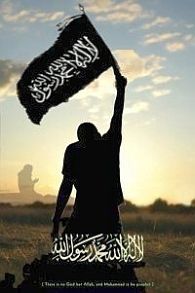 | « Back to article | Print this article |
 Hizb-ut-Tahrir has cleverly avoided any intense global scrutiny while spreading its ideology and support base in nearly 50 countries
Hizb-ut-Tahrir has cleverly avoided any intense global scrutiny while spreading its ideology and support base in nearly 50 countries
Radical Islamist group Hizb-ut-Tahrir which cleverly avoided global scrutiny while spreading its ideology may become a more dangerous terrorist group than the ISIS and it's presence in South Asia should be a cause for concern for India, according to a report.
"While ISIS runs amok in Syria and Iraq, demanding media attention through acts of barbarous cruelty, HuT (Hizb-ut- Tahrir or the Party of Liberation) is quietly building a global infrastructure of radicalised youth and deep-pocketed Arab support in preparation for the global Khilafat," said the report published in the latest edition of CTX Journal.
The group has cleverly avoided any intense global scrutiny while spreading its ideology and support base in nearly 50 countries, said the report.
The group commands a base of over one million members worldwide. This is far higher than what ISIS claims to have.
Citing reports, the journal said HuT has an armed wing called Harakat ul-Muhojirinfi Britaniya that is training its cadres in chemical, bacteriological, and biological warfare.
"HuT, therefore, has the potential to become an even more dangerous terrorist group than ISIS," said the journal from US-based Global Education Community Collaboration Online.
Founded in Jerusalem in 1952 and headquartered in London, the group has branches in Central Asia, Europe, South Asia, and Southeast Asia, particularly in Indonesia, where it has managed to garner great influence.
In South Asia, HuT has a significant presence in Pakistan and Bangladesh.
"Although HuT has reportedly found a foothold in India, its presence and influence have not made any significant impact," said the multimedia journal on strategic and security affairs.
"HuT's growing presence in neighbouring Bangladesh and Pakistan should be a cause of concern for India and the larger global community," it said.
On its website, HuT claimed that it had organised a demonstration in 2010 at Batla House in Delhi in protest against Israel's alleged atrocities.
The demonstration, which was attended by about 1,000 people, was HuT's last reported activity in India, said the report prepared by Surinder Kumar Sharma, who is associated with Delhi-based